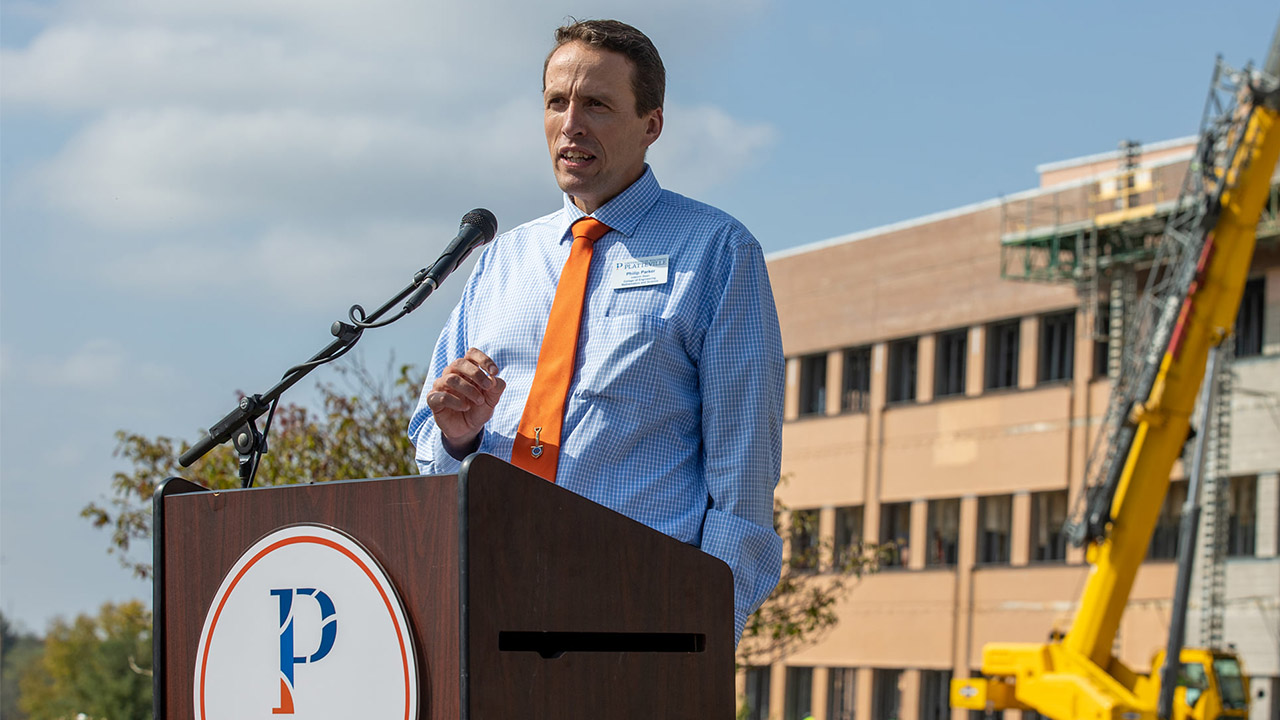
Led by the University of Wisconsin-Platteville, a consortium of four universities (UW-Platteville, Virginia Tech, Colorado State University, and Lafayette College) recently received a $300,000 grant from the National Science Foundation. Under the direction of Dr. Philip Parker, interim dean of the College of Engineering, Mathematics and Science, the Center for Infrastructure Transformation and Education (CIT-E) will use the grant to transform the approach to diversity, equity and inclusion in the field of civil and environmental engineering education.
Created nearly a decade ago and led by Parker, CIT-E is a group of professionals across multiple institutions nationwide that share an interest and passion for infrastructure education. Over the past several years, their work has included developing a model introduction to infrastructure course – the material of which has been adopted by dozens of universities across the country. This new grant will expand the capacity of the members of CIT-E to support the efforts of faculty integrating diversity, equity and inclusion into civil and environmental engineering curricula. This project will involve gathering and studying successful case studies from other institutions, as well as evaluating CIT-E’s own resources and needs, in order to identify and address gaps in their ability to do this work.
“This grant will allow us to analyze ourselves and really put ourselves under an X-ray to look closely and see if we have enough experts in this area of diversity, equity and inclusion within CIT-E,” said Parker. “How well situated are we to make change happen?”
The change CIT-E hopes to ultimately address is the destructive relationship between systemic racism and infrastructure. Examples of this, Parker said, can be seen in a number of ways – from communities of underrepresented minorities being displaced when new infrastructure is built or being cut off from opportunities because of infrastructure design, to the increased likelihood of poor health due to proximity to environmental hazards.
“The decisions that we make with infrastructure last decades, if not centuries, because it’s really complicated and expensive to change,” said Parker.
CIT-E hopes this project will develop the civil and environmental engineering academic community’s communal understanding of how diversity, equity and inclusion and infrastructure are related and be able to effectively educate students on this.
“We want to provide the tools to faculty so that they can feel more comfortable facilitating in-class conversations about what can be a politically-charged topic,” said Parker.
Parker said he is looking forward to the advantages the work will bring UW-Platteville, noting that several UW-Platteville faculty members are a part of CIT-E and will be directly supported in this work.
“This work aligns directly with UW-Platteville’s mission,” said Parker. “We are helping students become broader in perspective, be ethically more responsible and contribute wisely as an accomplished professional and knowledgeable citizen in a diverse, global community.”
This project is funded by NSF’s Improving Undergraduate STEM Education: Education and Human Resources Program (Grant award no. 2121326).